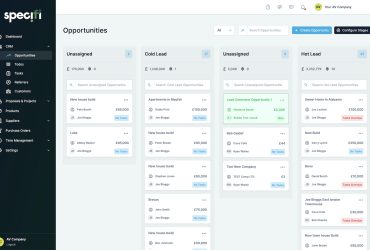The latest candidate in our series of Q&As with influential women in the technology business in Canada is Dimitra Maniatis, Area Vice President, Solution Consulting, Canada, ServiceNow, a software company.
Name: Dimitra Maniatis
Job Title: Area Vice President, Solution Consulting, Canada, ServiceNow
Years in the Industry: 15 Years
The Quote That Most Inspires You: “Vulnerability is not winning or losing. It’s having the courage to show up and be seen when you can’t control the outcome.” – (Brené Brown)
What drew you to a career in the consumer and/or business technology industry?
I was drawn to technology due to the subject matter expertise it required and have always loved being in a position to solve problems for customers. By actively listening to customers and asking the right questions, I can uncover what their true needs are. And once I have that understanding, technology can be used in many different ways to solve the issue, often to an extent that customers don’t even realize is possible.
When I first started working in tech, I sincerely appreciated the speed of execution and rate at which you could solve problems – this really drew me in. Compared to long processes in market research, in tech, outcomes could be met in as little as three to six months. I also fell in love with the customer profile, as the people buying our technology are forward-thinking when it comes to solving problems. They’re also willing to engage in meaningful conversations where the technology is secondary and human beings come first.
Have you encountered any roadblocks along the way that were related to your gender?
Early in my career, I had been in meetings with men where they’ve exhibited passive-aggressive behaviour. I don’t let these biases consume me and instead I walk away thinking about how I can position myself differently in the future. I don’t think I’ve missed out on opportunities because of being a woman. However, I still look around some board rooms and see that women are underrepresented. I recognize there is a need to do better and bring different perspectives to the industry.
In tech, we need to set an industry standard that brings women in at a younger age, training them from university where they should be encouraged and supported more. ServiceNow has started developing university programs and getting face time with women and diverse groups about career opportunities in technology. This is starting to open access to a more diverse talent pool with a targeted program in the U.S. and we’re working to model this in Canada as well. ServiceNow has spent a lot of time thinking about how to approach this and we’re making sure we’re going about this in the best way possible.

What unique characteristics or perspective do you feel you bring to your organization as a woman?
I come from a very different background than most people in my organization. With the unique experience I bring from years of working as a management consultant I’m able to take a step back and look at different ways to solve problems outside the application of tech itself. I like to focus on what the customer actually wants and needs as opposed to just furthering tech sales. This consulting approach is a bit different and ultimately enables me to sell more once the full breadth of a customer’s problem is understood.
Technology is historically a male-dominated industry, yet the use of tech is fully embraced by women, and many studies even suggest that females are the primary buyers of tech in the home. What do you feel the technology industry needs to attract more women, particularly into high-level positions?
I didn’t get my start in technology until someone approached me with an opportunity. We need all leaders, not just women, to be more open and committed to actively approaching new candidates and discovering talent. Let’s look for different profiles and at people outside the usual roles and organizations that we typically look to hire from. Hiring managers need to be open to looking for broader skillsets rather than technical backgrounds to find good candidates.
If you had to sum up what it is like being a woman in this male-dominated technology industry in just a few words, what would you say?
I have traditionally not noticed when I was the only woman in the room, but I’m starting to because it happens more often than it should. Things are definitely improving and many senior leaders in the technology industry are stepping up and having the conversations around the importance of diversity in the workplace. The issue of diversity, equity, and inclusion isn’t something that you can fix overnight but having plans to improve and holding leaders in the industry at all levels accountable is essential.
Are there other women in the tech industry who inspire you?
While she isn’t from the tech industry, I find Brené Brown so inspirational. She spoke at an event for my previous employer, and I brought some of the themes she discussed to our leadership team. We worked to implement them, and it has helped to make the organization more human in its approach, even if vulnerability may be uncomfortable at times. I also admire Sarah Blakely, founder of Spanx. I’ve followed her career closely ever since she started her company.
What are some of the misconceptions/myths about women working in the technology space that you’d like to dispel?
I don’t know if this is a myth per se, but I think there’s this expectation that the hard work of bringing more women into tech needs to be done by the women who are already in the industry. Women can and should play a part in these efforts, of course. For my part, I host women’s events internally and externally to raise awareness for better DE&I practices. But we need the active support of men in the industry to make real meaningful change. It’s only by all of us committing to doing the work that we can do right by women and other marginalized groups who deserve a seat at the table.
Also, I think some women may not be aware of the opportunities available to them in the industry beyond highly technical roles. And all of us in the industry need to do a better job to dispel this notion. Of course, you do have to be familiar with technology on a basic level and understand how it can be used to solve problems. But you do not need a degree in computer science to enter the industry. I come from a business management and consulting background, and I’ve found roles in tech where my experience and expertise are an asset.

What’s one thing you wish was done differently in the industry, and why?
I would like to see a shift in the industry to focus more on leading with empathy. Being authentic and building meaningful relationships with employees is important and I believe practicing authenticity and empathy are the only real ways to do that. By expressing yourself honestly, you build trust and make the people around you feel more comfortable opening up. And something amazing happens when you do this – people will share personal details of their lives they probably wouldn’t with others.
That’s what I bring to a workplace culture during leadership training, making sure people come together and experience alignment within our organization. It’s only by actively listening to customers and employees that we can put ourselves in their shoes. That’s how we understand their needs while making important human connections at the same time.
Are you optimistic for the future in general and for the industry?
Yes, and it’s the people in this industry who make me optimistic for the future. My colleagues and my clients are all pushing the boundaries of what’s possible through technology. But the first thing I always hear in meetings is the human impact of the story before we dig into the technical side of things. The innovations they create together are incredible and can fundamentally solve important problems. At ServiceNow specifically we’re making it easier for people to get their work done. This is so impactful since we spend so much of our day at our jobs. And I can’t wait to see what comes next.









